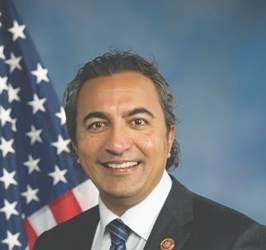AT SGS 2016
INDIAN WELLS, CALIF. (FRONTLINE MEDICAL NEWS) – Using chlorhexidine-alcohol preoperative skin antisepsis at the time of abdominal hysterectomy is associated with a lower incidence of surgical site infections (SSIs), compared with using povidone-iodine antiseptic solution, a large retrospective study showed.
“Surgical site infections have been linked to longer hospital stays, higher readmission rates, and overall increased healthcare costs,” Ali Bazzi, the lead study author, said at the annual scientific meeting of the Society of Gynecologic Surgeons. “Preoperative topical skin antiseptics have decreased the rate of SSIs over the years and have led to improved patient outcomes. Current published guidelines for skin preparations, specifically abdominal hysterectomies, do not routinely specify a choice of antiseptic. With greater than 500,000 hysterectomies performed each year in the United States, and about half done via laparotomy, this can have significant clinical implications.”
In an effort to determine whether the choice of preoperative topical antisepsis independently affects SSIs, Mr. Bazzi, a fourth-year medical student at the University of Michigan, Ann Arbor, and his associates in the university’s department of gynecologic oncology evaluated chlorhexidine-gluconate in alcohol versus povidone-iodine in aqueous solution. The second objective focused on determining certain patient factors and operative predictors of SSIs.
The researchers used the Michigan Surgical Quality Collaborative database to perform a retrospective cohort analysis of patients who underwent abdominal hysterectomy from July 2012 to February 2015. The primary outcome was diagnosis of a superficial, deep, or organ space SSI within 30 days of surgery, while the primary predictor was whether the individual cases received either the chlorhexidine-alcohol or the povidone-iodine antiseptic solution.
The researchers excluded cases with missing data, preoperative sepsis or emergent operative cases, and patients on chronic steroids due to immunosuppression, since these cases were associated with a higher than baseline risk of developing SSIs. Other types of skin preparation agents did not meet a large enough sample size and thus were underpowered. These cases were not included in the final analysis. Multivariate logistic regression models estimated the independent effect of skin antiseptic choice on the rate of SSI.
Mr. Bazzi reported results from 5,074 abdominal hysterectomies. Compared with patients in the povidone-iodine group, those in the chlorhexidine-alcohol group had several medical comorbidities, demographic and perioperative factors associated with the development of SSIs, including being more likely to have a BMI of 30 kg/m2 or greater; American Society of Anesthesiology Class of 3 or greater; dependent functional status; malignancy as a preoperative indication for surgery; estimated blood loss of greater than 250 cc; and surgery lasting longer than 3 hours.
The overall rate of any SSI was 3.6%. The unadjusted SSI rates based on antiseptic choice were 3.5% in the chlorhexidine-alcohol group and 3.8% in the povidone-iodine group. After using multivariate logistic regression adjusted for population differences, the researchers determined that chlorhexidine-alcohol was associated with a 30% lower odds of developing SSIs, compared with those in the povidone-iodine group (odds ratio, 0.71; 95% confidence interval, 0.51-0.98; P = .037).
Mr. Bazzi, who begins an ob.gyn. residency at St. John Hospital and Medical Center in Detroit in July 2016, acknowledged that other qualitative factors not included in the analysis could affect the incidence of SSIs, such as operative experience, surgical technique, resident exposure, type of ligature used, and excessive use of electrosurgical devices.
He noted that future randomized, controlled trials of skin antiseptic preparations given prior to abdominal hysterectomy would be helpful. For now, “we believe that future guidelines should specify the choice of antisepsis prior to abdominal hysterectomy,” he said at the meeting, which is jointly sponsored by the American College of Surgeons.
Mr. Bazzi reported having no financial disclosures.





